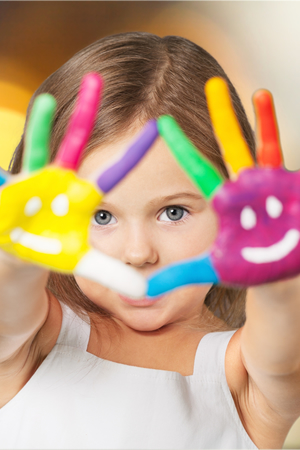About Us
 Our Background
Our Background
Our center originated from a mothers love for her children and desire to contribute to their education and emotional development during their most formative years. A-2-Z was founded by our director and head teacher, Ms. Sue Jennings, in 1991 as a home daycare. As enrollment began to skyrocket, Ms. Sue was able to establish the first A-2-Z location in 1993. From there on, she fostered the development of hundreds of children and many professionals for 17 years at that location.
Upon moving to this area with her family. Ms. Sue was the director at a well respected corporate operated childcare center for 3 years. During her time there, she missed the personal touch and individualized instruction a privately owned center could offer children and their families. With that in mind, Ms. Sue decided to go "back to the basics,” and re-establish A-2-Z in 2015. Upon re-opening her doors, Ms. Sue has dedicated herself to the "back to the basics” mentality, meaning we know every family and every child has their individual needs, and we as a staff will work everyday to meet those needs to the best of our ability.
 Our Philosophy
Our Philosophy
Our philosophy and practices are centered around the belief that children learn best through active engagement, exploration, and interaction with others. This approach integrates free play, guided activities, and social interaction to support cognitive, emotional, and social development. Here's a framework for such a philosophy:
1. Play as the Core of Learning
Child-Led Exploration:Encourage children to explore their interests through unstructured play, allowing them to use imagination, creativity, and curiosity to discover the world.
Developmentally Appropriate Play:Provide activities that are suited to the child’s age and developmental stage, such as sensory play, imaginative role-playing, and physical play.
Problem-Solving & Critical Thinking:Offer opportunities through games, puzzles, and building activities to stimulate critical thinking and problem-solving in fun ways.
2. Fostering Social Skills Through Interaction
Collaborative Play:Emphasize cooperative games and group activities where children learn to share, take turns, and resolve conflicts, fostering teamwork and communication skills.
Role-Modeling & Peer Learning:Encourage interactions between children of different age groups, where younger kids learn by observing and older children enhance leadership and empathy by helping their peers.
Emotional Expression & Regulation:Create safe spaces where children can express their emotions and learn to manage them, with guidance from caregivers to promote emotional intelligence.
3. Guided Play and Scaffolding
Facilitated Play with Adult Support:Caregivers act as facilitators, guiding children during structured activities to help them navigate challenges, encouraging persistence, and expanding their play into deeper learning.
Scaffolded Learning:Gradually increase the complexity of tasks or introduce new elements in play that challenge children while supporting their success, allowing them to build confidence in their abilities.
4. Holistic Child Development
Physical Development:Incorporate active, physical play to support gross and fine motor skills, including outdoor play and movement activities.
Cognitive Development:Include activities like story-telling, games with rules, and hands-on exploration (like building blocks, water play, or art) that stimulate cognitive growth.
Creative Expression:Provide ample opportunities for imaginative play, arts, and crafts, music, and dance, encouraging self-expression and creative problem-solving.
5. Creating a Nurturing and Inclusive Environment
Safe, Secure Setting:Establish a physically and emotionally safe environment where children feel valued, respected, and understood, which allows them to take risks in their learning and social interactions.
Inclusive Practices:Celebrate diversity by introducing activities, stories, and experiences that reflect different cultures and family structures, teaching children empathy and acceptance.
Positive Reinforcement:Use encouragement and positive reinforcement to build self-esteem and foster a love for learning, rather than emphasizing competition or comparison.
6. Family and Community Engagement
Family as Partners in Learning:Involve families in the daycare's activities and learning process, sharing insights and strategies for extending social and play-based learning at home.
Community Interaction:Engage with the local community, organizing outings or bringing in visitors to expand the children's understanding of the world beyond the daycare setting.
Key Benefits of Play- and Social Skills-Based Philosophy:
Cognitive Growth:Children develop foundational skills like problem-solving, logical thinking, and creativity through active play.
Social-Emotional Development:Children learn empathy, cooperation, communication, and emotional regulation through interactions with peers and caregivers.
Confidence and Independence:Children build self-confidence and learn to be independent by exploring their interests in a supportive environment.
Preparation for School:While play-based, the approach prepares children for more formal schooling by building the social skills needed for group settings and introducing them to pre-literacy, math, and problem-solving concepts.
This philosophy combines the natural inclination of children to learn through play with intentional social development, helping them build a strong foundation for future academic and social success.
Visit Us Today!
To see our Center's philosophy in action and find out what makes us the best daycare around, we’d love to give you a tour of our early childhood center. Contact us today!
 Our Background
Our Background Our Philosophy
Our Philosophy